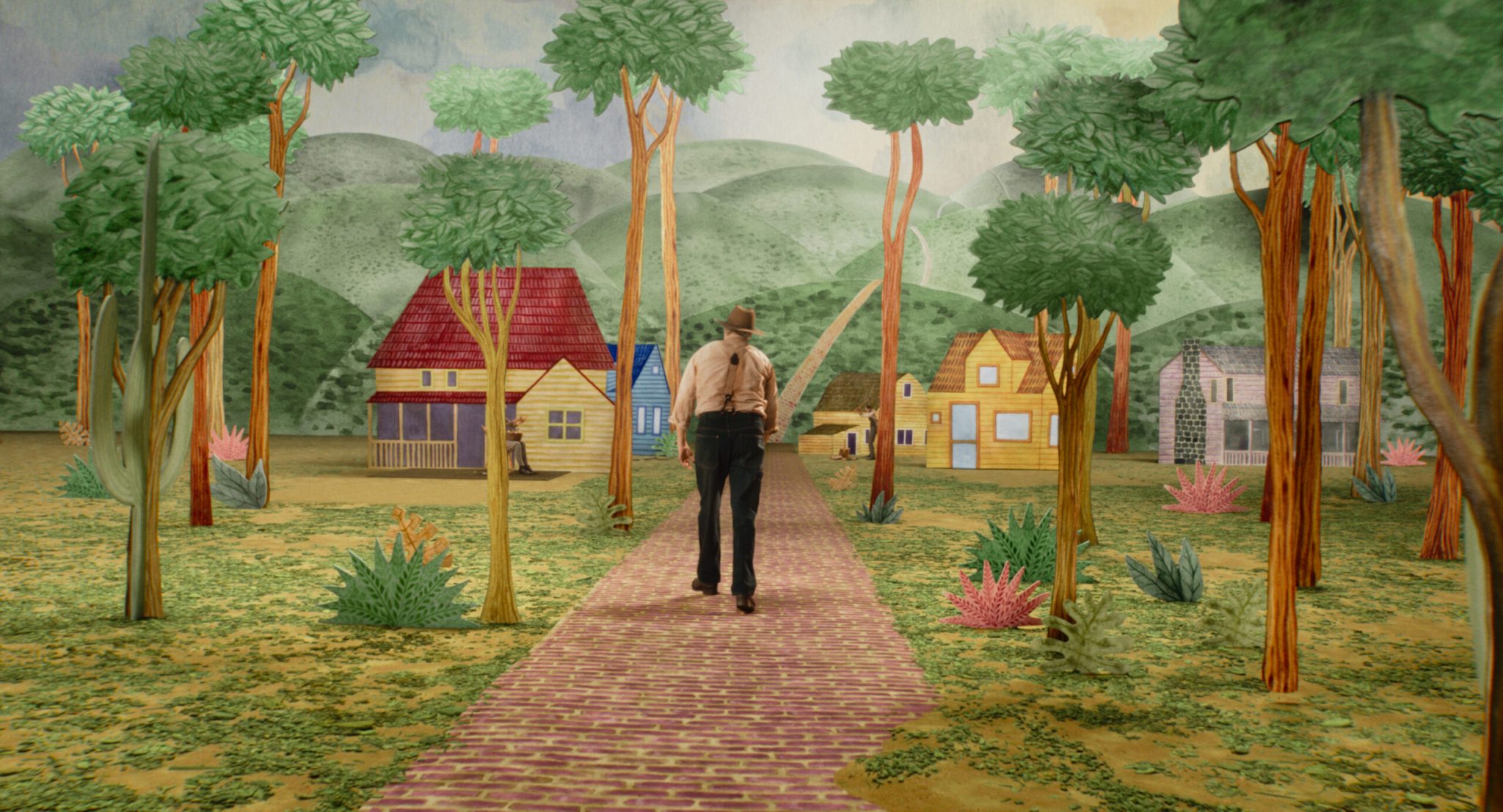To describe Ari Aster’s frantic, Freudian odyssey as ‘good’ or ‘bad’ somehow feels thoroughly redundant
With the release of Beau is Afraid, cinema has at last been gifted with a film that represents the anxious brain in much the same way as Lars von Trier’s Antichrist (2009), with its violent sexual angst and cock-eyed view of nature, represented the depressed one. Then again, perhaps ‘gifted’ is the wrong word – better might be ‘startled’ or ‘provoked’ or ‘baffled’. Ari Aster’s latest, a wilfully slippery movie with a deceptively familiar odyssey narrative, is by turns overindulgent, brilliant, spooky, funny, deeply irritating, strange, psychosexual, silly, heavy-handed, and dazzlingly inventive. It is also doggedly obsessed with dongs. To describe it as a ‘good’ or ‘bad’ film feels as thoroughly redundant as applying the same terms to a patient transcript from a psychotherapist. It is That Thing Where You Describe an Obviously Symbolic Dream to Your Therapist and Then Ask What It’s About, Even Though You Know Damn Well What It’s About: The Movie, and accordingly whether or not it is worth seeing depends entirely on your tolerance for hearing about other people’s dreams.
If it sounds like I am gearing up to savage Aster’s film, rest assured that this is not the case. It is something of a mess, an experiment gone frantically and Freudianly awry; I am also sort of thrilled that it exists, and that it has been released into the world with all its eccentricities intact. Beau Wasserman, played with an often anaesthetised-seeming nervousness by Joaquin Phoenix, is a cripplingly neurotic man who lives on a violent, filthy street in some unspecified area of (presumably) America. His mother, a redheaded tyrant with a neat line in the kind of pushmi-pullyu love and hate that makes a child grow up into a man like Beau, is decapitated by a falling chandelier in the first half-hour of the film, and the rest of the action covers Beau’s attempts to reach her home as fast as possible so that, per Jewish tradition, she can be swiftly buried. Because Beau is Afraid runs to two hours and fifty-nine minutes, it does not seem like a spoiler to say that his journey to the funeral is not smooth or easy, and that Mean Mommy’s death does not mean that we’ve seen the last of her, onscreen or in our nightmares.
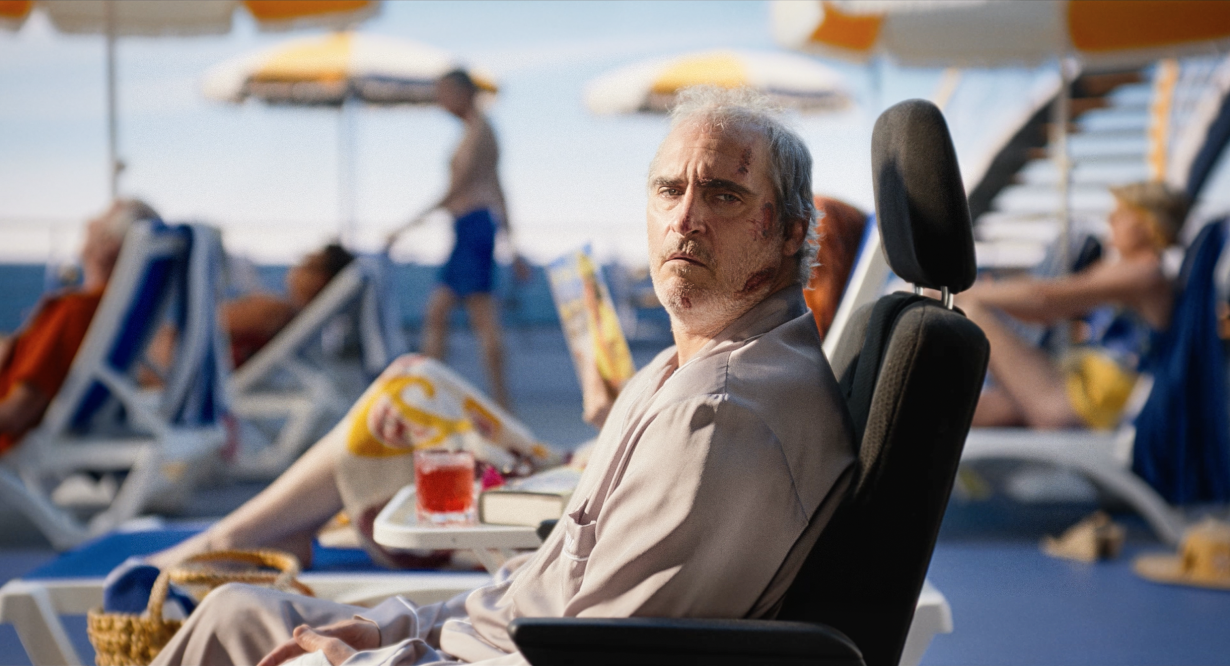

Aster’s two earlier movies, Hereditary (2018) and Midsommar (2019), both suggested the arrival of a horror auteur whose best scenes carried an air of total freshness, a uniquely Asterian sensibility and style. My impression is that he has not yet made his masterpiece, but at his sharpest and most merciless, nobody else currently working in the genre can compare – think, for instance, of Hereditary’s car beheading scene, or the domestic serial murder that begins Midsommar, or the way that both films use the sound of grief, the animal inarticulacy of it, as a kind of soundtrack instrument. Hereditary is also significantly more successful if it’s read as a black comedy rather than as an occult chiller whose grand-guignol-Blumhouse second half is delivered with a straight face, and Beau is Afraid’s more explicitly comical flourishes make that easier to imagine. It is easier to imagine, too, when you remember that Aster is in his thirties, and that lacerating, deadpan humour about death and drug addiction and mental illness and sexual malady is, at least online, a cornerstone of millennial communication. Here, bad-taste gags run rampant, as swift and unpleasant as the recluse spiders that skitter around Beau’s Dantean apartment building. A nude serial killer on the loose is given the nom-de-media “Birthday Boy Stab Man”; the sex shop Beau lives next door to is called “Ejectus Erectus”. “Have you ever wished your Mom was dead?” a cheerful therapist asks him, the professional equivalent of Krusty the Klown saying the quiet part loud.
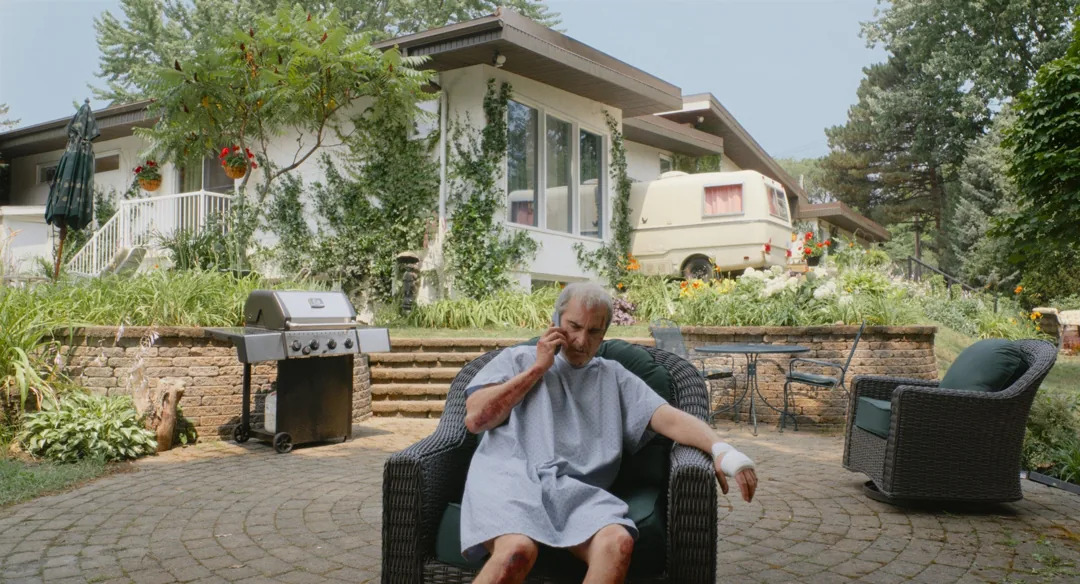
When I said that the film represented the experience of occupying an anxious brain, what I was mostly referring to was Beau’s dystopian and grungy neighbourhood, which makes the New York of early Paul Schrader movies look like – well, the obvious line is ‘look like Disneyland’, but then I have to imagine Ari Aster could make even Disneyland look very threatening indeed. Its farcical hostility – the drugs and sex shops, the perpetual screaming, the casually abandoned corpses, the graffiti and the unhoused addicts that chase Beau towards his building – makes literal and visual the constant paranoia and heightened sense of danger that accompanies severe anxiety, the nagging feeling that the sufferer is underneath a Damoclean sword at every moment. The location changes, but the mood remains reliably hysterical. Nature and suburbia and luxury all house their own unpredictable and mysterious forms of evil: good Samaritans are so good that their goodness becomes suffocating and perverse; teenage girls display a Machiavellian knack for sexual blackmail; in a sly inversion of Žižek’s analysis of the house in Hitchcock’s Psycho, an attic and not a basement comes to represent the id, ‘a reservoir of illicit drives’. If Beau is afraid, we think as we spend three hours in his head, it is hardly a surprise.
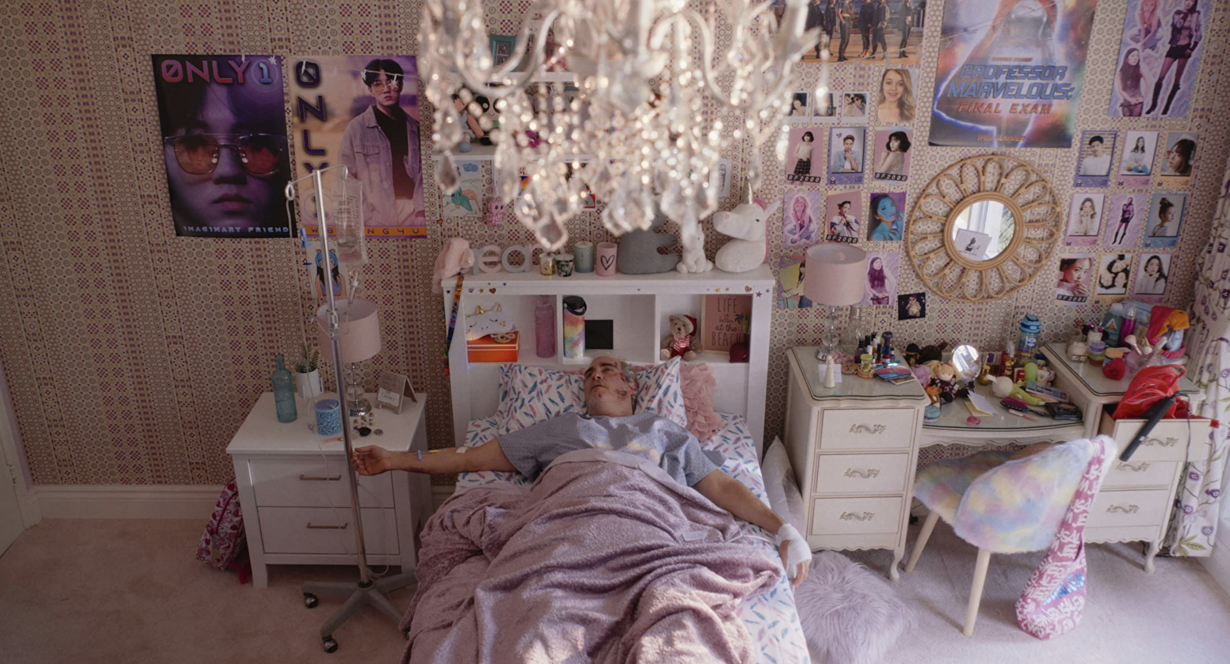
The effect of this amplification on the viewer lurches, at times, from exhilaration to plain irritation, and what might be entirely clear to Aster remains opaque to us largely because the film is so singularly engineered to reflect one man’s wild neuroses. Fine by me – having clinical anxiety, as I know from very personal experience, is irritating, and the anxious mind’s persistent habit of seeing booby traps in the quotidian is, like Aster’s film, both maddening and cruel. Certainly, Beau is Afraid could stand to lose an hour from its middle stretch, and if you feel an especially urgent need to see a meta-play embedded in a tale about a crazy man with Mommy issues, Hamlet does it better.
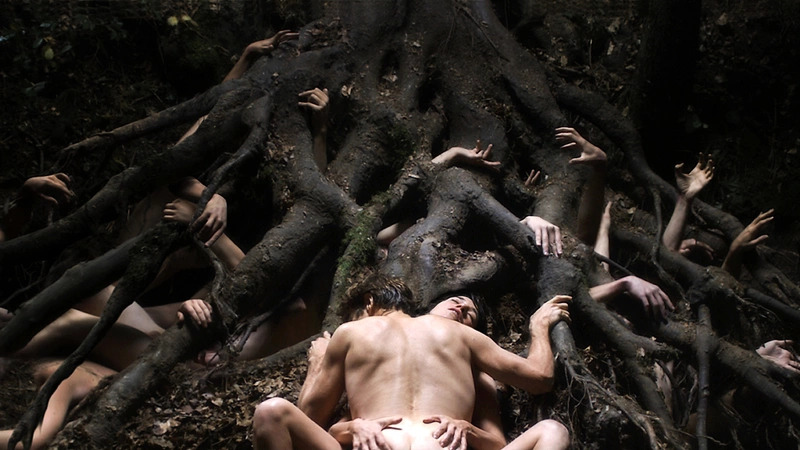
When I likened Beau to Antichrist, I was not only thinking of this film’s flamboyant psychosexual strangeness, but of both auteurs’ apparent willingness to put audiences through an ordeal for the sake of self-expression. Von Trier, too, is mordantly amusing, and both men share many qualities aside from their mutual obsessions with familial toxicity: a mistrust of talking therapy; a tendency to write female characters who are, for good or ill, more domineering and distinctive than the male lead; an unabashed interest in perversion; an ability to produce startling images that burrow, parasitic, into unsuspecting viewers’ heads.
I left Beau is Afraid thinking I disliked the movie for its shagginess and self-indulgence, and yet once I started actually making notes, I found myself settling on an entirely different, contradictory opinion, its unwieldiness transforming from a bug into a feature. Sometimes, I suppose, this is the only way to find out what one actually thinks – by letting the unconscious mind, with its rattling high-speed motor and its unpredictable and jagged edges, do its work, before letting the conscious one clean up the freaky, sticky mess.
